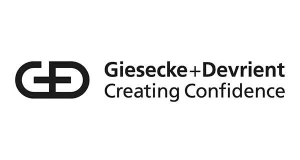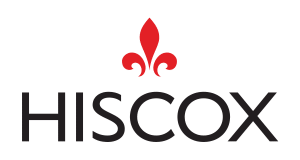Präsentation l Moderation l Rhetorik & Stimme l Konfliktlösung l Verhandlung l Storytelling
Maßgeschneidertes Kommunikationstraining für Fach- und Führungskräfte
Steigern Sie die Produktivität Ihrer Mitarbeiter durch effiziente Kommunikation.

Ihre Mitarbeiter lernen:
- Verbesserung der Kommunikations- und Verhandlungsfähigkeiten der Mitarbeiter
- Einsatz von Storytelling und präzisen Präsentationstechniken zur Vermittlung komplexer Inhalte
- Effektive Moderation von Meetings und Arbeitsgruppen
- Nutzung von Rhetorik und Stimme zur Steigerung der Überzeugungskraft
- Anwendung von Techniken zur Konfliktlösung um produktive Diskussionen zu fördern
Der Nummer 1 Ansprechpartner für individuelles Kommunikationstraining.
Unsere Trainingsmethoden bringen Ihnen drei große Vorteile:
1
Einfaches Integrieren
2
Spezifisch
3
Praxiserprobt
Wir kombinieren psychologisch fundiertes Wissen mit langjähriger Erfahrung, optimiert für das Zeitalter der Digitalisierung.
Oder senden Sie uns eine E-Mail
Ihr Unternehmen lebt von Kommunikation.
Ihr Unternehmen hat bereits etablierte Prozesse und klare Aufgabenverteilungen, also weiß theoretisch jeder, was er zu tun hat.
Oftmals fehlt aber die Zeit, neue Mitarbeiter richtig einzuarbeiten und in ihrem Aufgabengebiet weiterzubilden. Der einfache Hebel der klaren Kommunikation wird oft unterschätzt und deshalb hintangestellt.
Klare verbale und nonverbale Kommunikation sorgt für:
- Nmehr Produktivität durch geschmeidigeren Informationsfluss ohne Kommunikationslücken
- Nweniger Zeitaufwand durch klares Kommunizieren, in dem nur wichtige Informationen an die richtige Zielgruppe weitergegeben werden
- Nverbessertes Betriebsklima und zufriedene Mitarbeiter durch das frühzeitige Erkennen und Lösen von Konfliktsituationen


Abgesehen von den „internen Vorteilen“ macht sich klare Kommunikation auch extern bemerkbar.
Wenn beispielsweise Ihre Salespräsentanten gute Kommunikation beherrschen, wissen sie genau, ihre Sprache, Stimme und Körperhaltung auf jeden Kunden individuell einzustellen.
Ein Einkäufer lernt die Körpersprache seines Verhandlungspartners zu verstehen und ist dadurch in der Lage, im richtigen Moment seine Strategie anzupassen. Ihr Personal bestimmt zu einem großen Teil die Außenwahrnehmung Ihres Unternehmens.
Ihre Mitarbeiter brauchen nur das richtige Werkzeug, um die positive Sichtbarkeit Ihres Unternehmens zu fördern und das Empfehlungsnetzwerk anzukurbeln.
Dadurch entstehen nicht nur zwischenmenschlich überzeugende Begegnungen, sondern auch langfristig bessere Beziehungen zu Ihren Geschäftspartnern und Kunden.
Unser Portfolio im Bereich des Kommunikationstrainings.
Zu unserem Portfolio in diesem Bereich gehören Trainings zu Präsentation, Moderation, Rhetorik, Stimme, Konfliktlösung, Gesprächsführung, Verhandlung und Storytelling.
Die Kunst der überzeugenden Sprache meistern und tiefen Eindruck mit Worten, Gesten und Stimme hinterlassen. Mit unseren effektiven Kommunikations- und Rhetorikkursen bringen wir die Teilnehmer zum Strahlen.
Die Teilnehmer entdecken, wie sie mit unseren individuellen Präsentationstechniken sicher auftreten und die Aufmerksamkeit ihres Publikums gewinnen.
Als perfekter Moderator ist es die Aufgabe, komplexe Sachverhalte präzise zu kommunizieren. Die Teilnehmenden lernen hier, wie sie ihre Moderationstalente auf Hochglanz polieren können.
Mit gezieltem Stimmtraining wird gelehrt, wie man mit Klang, Ton und Volumen modulieren kann, um die Botschaft wirkungsvoll zu übermitteln.
Unstimmigkeiten und Konflikte gehören zum Alltag dazu. Wir zeigen den Teilnehmern, wie sie Konfliktsituationen souverän meistern und dabei alle Beteiligten im Blick behalten.
Ein angenehmes Gespräch basiert auf Respekt und guter Zuhörerfähigkeit. Die Teilnehmer lernen, wie sie in professionellen Gesprächen stets den richtigen Ton treffen.
Gut verhandeln heißt, die richtigen Worte zur richtigen Zeit zu finden. Unser Trainingsprogramm unterstützt dabei, verhandlungssicher und selbstbewusst aufzutreten.
Geschichten lassen sich besser merken als Fakten. Teilnehmer entdecken die Kunst des Storytellings und wie sie damit ihre Botschaft eingängig und überzeugend vermitteln können.
Präsentation
Bereit für Ihren großen Auftritt? Entdecken Sie, wie Sie mit unseren individuellen Präsentationstechniken sicher auftreten und die Aufmerksamkeit Ihres Publikums gewinnen.
Moderation
Als perfekter Moderator ist es Ihre Aufgabe, komplexe Sachverhalte präzise zu kommunizieren. Erfahren Sie hier, wie Sie Ihre Moderationstalente auf Hochglanz polieren können.
Rhetorik
Meistern Sie die Kunst der überzeugenden Sprache und lassen Sie Ihre Worte einen tiefen Eindruck hinterlassen. Mit unseren effektiven Rhetorikkursen bringen wir Sie zum Strahlen.
Stimme
Entdecken Sie die Macht Ihrer Stimme. Mit gezieltem Stimmtraining lernen Sie, wie Sie Ihren Klang, Ton und Ihr Volumen modulieren können, um Ihre Botschaft wirkungsvoll zu übermitteln.
Konfliktlösung
Unstimmigkeiten und Konflikte gehören zum Alltag dazu. Wir zeigen Ihnen, wie Sie Konfliktsituationen souverän meistern und dabei alle Beteiligten im Blick behalten.
Gesprächsführung
Ein angenehmes Gespräch basiert auf Respekt und guter Zuhörerfähigkeit. Lernen Sie hier, wie Sie in professionellen Gesprächen stets den richtigen Ton treffen.
Verhandlung
Gut verhandeln heißt, die richtigen Worte zur richtigen Zeit zu finden. Unser Trainingsprogramm unterstützt Sie dabei, verhandlungssicher und selbstbewusst aufzutreten.
Storytelling
Geschichten lassen sich besser merken als Fakten. Entdecken Sie die Kunst des Storytellings und wie Sie damit Ihre Botschaft eingängig und überzeugend vermitteln können.
Mit Kommunikationstrainings Wettbewerbsvorteile schaffen.
Mit Kommunikationstrainings können Unternehmen signifikante Wettbewerbsvorteile erzielen. Durch gezielte Schulungen oder Seminare gelingt es, die Kommunikation zu verbessern, was die Kooperation innerhalb des Teams fördert: Projekte und Strategien werden effizienter umgesetzt. Projekte bleiben im geplanten Budget und erreichen die geforderte Qualität.
Firmeninterne Seminare dienen zudem als Motivationsfaktor für Mitarbeiter. Gerade beim Bewerbungsprozess kann das Angebot solcher Fortbildungen ein entscheidendes Argument gegenüber Mitbewerbern sein. Spezielles Teamcoaching stärkt den persönlichen Kommunikationsstil jedes Einzelnen und trägt so zur erfolgreichen Zusammenarbeit bei.

Basiswissen für ein effektives Kommunikationstraining.

Eine solide theoretische Basis ist im Kommunikationstraining unerlässlich. Dabei stehen besonders das Vier-Seiten-Modell von Schulz von Thun und die fünf Axiome der Kommunikation nach Watzlawick im Vordergrund.
Diese Modelle helfen, die vielschichtigen Ebenen der Kommunikation und potenzielle Missverständnisse zu verstehen. Dank dieser Theorien können Praktiker die Bedeutung des Kontextes und kultureller Unterschiede besser einordnen.
Diese theoretischen Ausführungen bilden ein starkes Fundament für zahlreiche einfache Übungen, die im Training eingesetzt werden.
Der Übergang von Theorie zur Praxis ist entscheidend, um die theoretischen Konzepte der Kommunikation im Alltag zu verankern. Hier kommt der Praxisbezug ins Spiel, der durch gezielte Übungen gefördert wird. Doch Teilnehmer unserer WORTLAND-Trainings lernen nicht nur die praktische Anwendung der vier Seiten einer Nachricht, sondern auch, wie nonverbale Signale und emotionale Intelligenz die Kommunikation beeinflussen.
So werden sie auf die Herausforderung vorbereitet, Ruhe zu bewahren, Botschaften klar zu senden und richtig zu empfangen. Mit diesen fundierten Kenntnissen können praktische Fähigkeiten effektiv entwickelt werden.

Was lernt man in einem Kommunikationstraining?
Ein Kommunikationstraining vermittelt wesentliche Fähigkeiten, die in nahezu jedem Aspekt des täglichen Lebens von Bedeutung sind, sei es im Beruf oder im sozialen Umfeld. Es lehrt, wie man effektiv kommuniziert, Gedanken präzise vermittelt und aktiv zuhört. Durch die Beherrschung dieser Techniken kann man in verschiedenen Situationen klar und überzeugend kommunizieren, Konflikte bewältigen sowie stärkere, bedeutungsvolle Beziehungen aufzubauen.
Das Kommunikationstraining umfasst verschiedene Methoden und Übungen, die darauf abzielen, Gespräche erfolgreich führen zu können und einen nachhaltigen Lerneffekt zu erzielen. Hier sind einige zentrale Methoden und Übungen im Überblick:
Aktives Zuhören:
Diese Übung lehrt volle Konzentration auf den Gesprächspartner, um Gedanken und Gefühle wirklich zu verstehen. Es ist zentral für empathische Kommunikation.
Klarheit und Präzision:
Hier wird geübt, sich klar und verständlich auszudrücken, um nicht missverstanden zu werden. Fachjargon wird vermieden.
Körpersprache:
Teilnehmer lernen, wie Mimik, Gestik und Haltung die verbale Kommunikation unterstützen und die zwischenmenschlichen Beziehungen verbessern können.
Konstruktives Feedback:
Diese Übungen konzentrieren sich darauf, wie man Feedback effizient gibt und empfängt, um Verhaltensweisen zu reflektieren und zu verbessern.
Rollenspiele:
In simulierten Situationen üben Teilnehmer, neue Fähigkeiten auszuprobieren, bevor sie sie in realen, auch schwierigen Gesprächen anwenden.
Selbstreflexion:
Teilnehmer denken über ihre eigenen Kommunikationsgewohnheiten nach und identifizieren Bereiche zur Verbesserung.
Videoanalyse:
Aufzeichnungen von Übungen werden analysiert, um averbale Signale und Sprechmuster besser zu verstehen und zu optimieren.
Regelmäßiges Training:
Kontinuierliche Übung ist entscheidend, um die erlernten Fähigkeiten zu festigen und weiterzuentwickeln.
Das sagen unsere Kunden über unsere Trainings:

Häufig gestellte Fragen.
Was ist ein Kommunikationstraining?
Ein Kommunikationstraining ist ein gezieltes Programm, das darauf abzielt, die kommunikativen Fähigkeiten von Einzelpersonen oder Gruppen zu verbessern. Mit Hilfe solcher Trainings lernen die Teilnehmer, Gespräche erfolgreich zu führen, selbst in schwierigen Situationen. Wir bieten Ihnen maßgeschneiderte Trainingskonzepte aus einer Hand - ganz ohne langwierige Trainersuche.
An wen richtet sich unser Kommunikationstraining?
Für Fach- und Führungskräfte, Verkaufspersonal und Marketingfachleute bieten Kommunikationstrainings großen Mehrwert. Sie helfen dabei, besser zu kommunizieren, was z.B. beim Mitarbeitergespräch, beim Aufbau von Kundenbeziehungen und in der Beratungskompetenz entscheidend ist. Gut kommunizieren zu können, ist ein Schlüssel zum Erfolg in vielen beruflichen Bereichen.
Auch Privatpersonen können von den Trainings profitieren. Diese helfen im Umgang mit Menschen in alltäglichen Interaktionen wie Schule und Familie. Dadurch lassen sich Beziehungen aufbauen und verbessern. Klar und empathisch zu kommunizieren, trägt wesentlich zu einem harmonischen Zusammenleben bei.
Welche Gesprächstechniken werden in Ihrem Kommunikationstraining vermittelt?
Wir decken umfassende Gesprächs- und Kommunikationstechniken ab, darunter aktives Zuhören, gezielte Fragestellung und Fertigkeiten zur Konfliktlösung. Unsere Teilnehmer lernen, wie sie diese Techniken in unterschiedlichsten Gesprächssituationen einsetzen können.
Wie können Führungskräfte und Mitarbeiter von einem Kommunikationstraining profitieren?
Führungskräfte und Mitarbeiter profitieren von einem Kommunikationstraining durch verbesserte Teamarbeit, effektivere Problemlösung und gesteigerte Motivation. Besonders im Rahmen der Führungskräfteentwicklung können sich Persönlichkeiten dabei weiterentwickeln.
Welche Kommunikationsfähigkeiten werden in Ihren Trainings besonders fokussiert?
Neben den Grundlagen wie der verbalen und nonverbalen Kommunikation legen wir besonderen Fokus auf rhetorische Fähigkeiten, Storytelling, Verhandlungsführung und Präsentationstechniken.
Sind Ihre Trainingskonzepte für verschiedene Branchen geeignet?
Ja, unsere Trainingskonzepte sind branchenübergreifend anwendbar, da grundlegende Kommunikationsfähigkeiten in jedem Arbeitsumfeld entscheidend sind. Wir passen die Schulungsinhalte jedoch an die spezifischen Herausforderungen Ihrer Branche an.
Wie werden die Trainingsinhalte auf die individuellen Bedürfnisse unseres Unternehmens abgestimmt?
Wir führen vorab eine Bedarfsanalyse durch, um die spezifischen Kommunikationsherausforderungen und Ziele Ihres Unternehmens zu identifizieren. Darauf basierend entwickeln wir maßgeschneiderte Trainingskonzepte.
Bieten Sie auch Online-Kommunikationstrainings an?
Ja, wir bieten sowohl Präsenz- als auch Online-Trainings an, um den unterschiedlichen Bedürfnissen und logistischen Anforderungen unserer Kunden gerecht zu werden.
Was ist der Unterschied zwischen Kommunikationstraining und Rhetorik?
Während Kommunikationstrainings hauptsächlich auf den effektiven zwischenmenschlichen Austausch ausgerichtet sind, indem sie Fähigkeiten wie aktives Zuhören, Empathie und nonverbale Kommunikation fördern, konzentriert sich die Rhetorik primär auf die Kunst der öffentlichen Rede und der Präsentation. Rhetorik schult insbesondere in der effektiven Strukturierung von Botschaften, dem überzeugenden Vortrag und dem Einsatz von Sprache, um das Publikum zu beeinflussen und zu motivieren.
WORTLAND – Die sichere Entscheidung sind wir!
WORTLAND – Die sichere Entscheidung sind wir!
Besser kommunizieren, effektiver arbeiten und harmonischer zusammenleben – Unser maßgeschneidertes Kommunikationstraining bietet gezielte Unterstützung für Ihr Team.
Profitieren Sie von persönlicher Beratung und schnellen Trainingskonzepten zur Verbesserung der Kommunikation in Ihrem Unternehmen. Jetzt persönliche Beratung sichern und Kommunikation auf das nächste Level heben!

Oder senden Sie uns eine E-Mail



















